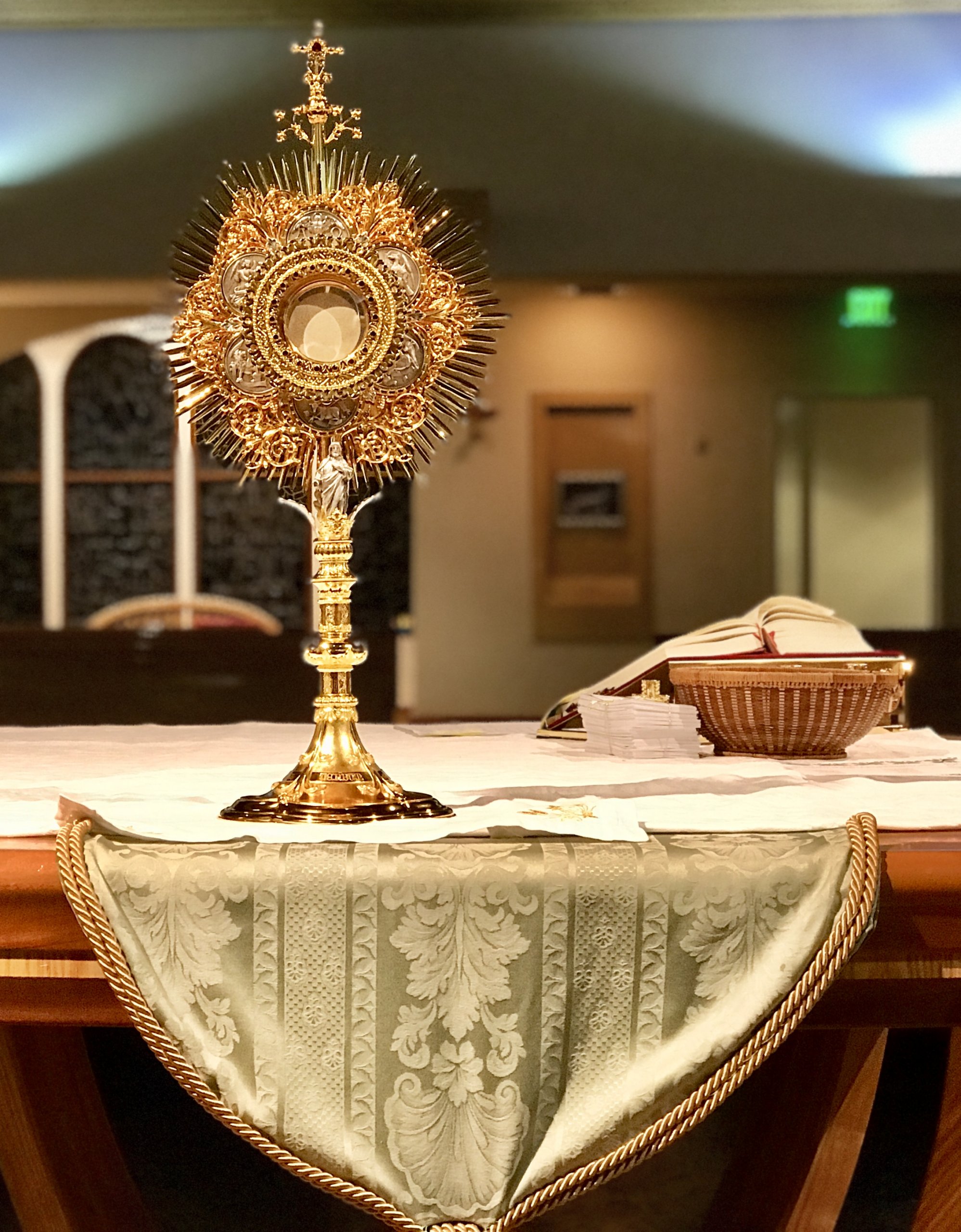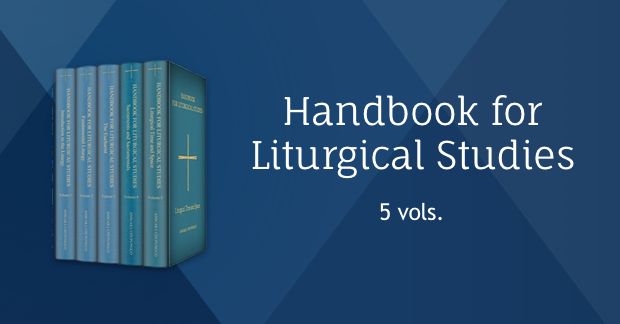by Jeremy Priest, STL; Chair, Department of Discipleship Formation; Director, Office of Worship; Roman Catholic Diocese of Lansing
My favorite resources are those that help me delve more deeply into the Mass and the Church’s liturgical tradition. The Collect for last Sunday, the 22nd Sunday in Ordinary Time, gives us a wonderful example. First, I put the English translation of the 3rd Edition of the Roman Missal alongside the Latin. Whether your Latin is excellent, poor, or non-existent, Verbum allows you to go deeper into the vocabulary of the Roman Missal and discover the richness of the Mass.
Viewing this Collect in Latin and English allows one to see more clearly into the Biblical roots of the prayers we pray on Sunday. Here, the verb insere caught my attention. WhenI double-clicked on the Latin word I was immediately brought to my first-preference Latin dictionary: Whitaker’s Dictionary of Latin Forms, where I learned that insere has the sense of to “plant, sow; graft on; put in, insert.”
That got me thinking of Saint Paul’s Letter to the Romans where he speaks of the “ingrafting” of the Gentiles. Intrigued, I decided to do a deeper search with “insero” in the Basic Search bar. This turned up several helpful results, from which I selected the Lexham Analytical Lexicon of the Vulgate. Here I learned that not only is this word used in the Vulgate, it’s also fairly rare; found almost exclusively in the Book of Exodus and Saint Paul’s Letter to the Romans:
And then I clicked on the Lexham Latin-English Interlinear Vulgate where I was able to visually see the occurrences of insero highlighted in the text of Romans. I went a little further and brought up the Vulgate in parallel with the Douay-Rheims Bible:
So, in its basic sense, insero means “to sow or plant in; to ingraft,” or “to graft on… a scion on to (a tree); to propagate by grafting.” In the Vulgate New Testament, insero is used six times when St. Paul is speaking of the “ingrafting” of the wild olive shoot of the Gentiles onto the “nourishing root of the olive tree” (Rom 11:17). Certain branches have been broken off and we have been “made partaker[s] of the root and of the fatness of the olive tree” (Rom 11:17, Douay-Rheims)!
Going back to the Collect, I noticed that not only does the Church use the image of ingrafting in this prayer, but she also employs two references to “nurture.” These work to compound the language of engrafting. We not only pray that God may ingraft [ínsere] “into our hearts the love” of His name,” but that He would “nurture” what is good in us and “keep safe” what He has “nurtured.” These give the sense of God as gardener (see Gen 2:8) or vinedresser (see John 15:1 & Isaiah 5). A quick search in this direction brought up this beautiful passage from St. Augustine in John: Interpreted by Early Christian and Medieval Commentators:
But there is more to consider. After he says that the Father, as the vinedresser (15:1), removes the branches (15:5) that do not bear fruit and prunes those branches that do so that they may bear more fruit (15:2), he immediately identifies himself also as one who purifies the branches. He says, You are already made clean by the word which I have spoken to you (15:3). Notice that he also prunes the branches (15:5). This is the task that belongs to the vinedresser, not the vine.
The language of the collect that calls upon God to engraft and nurture has a powerful feel in the context of the current crisis in the Church. In the collect the Lord shown as the One who nurtures this vine and protects it, nutrio being used twice in the collect. In a broad sense, nutrio means “to suckle, nourish, feed, foster, bring up, rear.” In the context of the ingrafting image, nutrio has the sense of supplying “(plants) with what is necessary for growth, nourish[ment].”
In all this, the Collect for the 22nd Sunday of Ordinary Time has much to say to us. It focuses our longings toward a greater love for the Holy Name to be grafted into our hearts. It calls us to receive our nourishment from the Vine, our daily tending from our Father, who is the vinedresser. It directs us to give not merely intellectual assent to these truths, but to make these our own desires, our very pleadings to bring to the Father.
Not only is the collect “the priest’s prayer…concluding the prayer of the assembly,”[1] the collect brings the prayer of the faithful to a point, to a specific petition. The collect thus calls the faithful to unite in one mind and heart in the petition being uttered by the priest, so that the Church’s prayer is one, “as if she had but one soul and one and the same heart.”[2] So it is that in the Collect for the 22nd Sunday of Ordinary Time the Church asks God to graft “into our hearts the love of” God’s name. In this way the Church asks that a “deepening…sense of reverence” might abound in us, and through that, the life of the Vine might be nurtured in us.
[1] Anscar Chupungco, “Collect,” ed. Angelo Di Berardino and James Hoover, trans. Joseph T. Papa, Erik A. Koenke, and Eric E. Hewett, Encyclopedia of Ancient Christianity (Downers Grove, IL: IVP Academic; InterVarsity Press, 2014), 568.
[2] St. Irenaeus of Lyons, St. Irenaeus of Lyons: Against the Heresies, Book 1, ed. Walter J. Burghardt, John J. Dillon, and Thomas Comerford Lawler, trans. Dominic J. Unger, vol. I, 55th ed., Ancient Christian Writers (Mahwah, NJ; New York: The Newman Press, 1992), 49: 1.10.2.
Recommended Liturgical Resources
- T&T Clark Companion to Liturgy – Alcuin Reid
- From Eucharistic Adoration to Evangelization – Alcuin Reid
- Worship in the Early Church: An Anthology of Historical Sources (4 vols.)
- Analytical Lexicon of the Vulgate
- Lexham Latin-English Interlinear Vulgate Bible
- Missals of the Roman Catholic Church
- Lectionary for Mass: For Use in the Dioceses of the United States of America, 2nd ed., vols. 1–4
- The Liturgy of the Hours: According to the Roman Rite (4 vols.)
- Lewis & Short’s Latin Dictionary
- Whitaker’s Dictionary of Latin Forms
- Catechism of the Catholic Church Collection (9 vols.)
- Joseph Ratzinger / Benedict XVI Collection (48 vols.)
- The Mass of the Roman Rite: Its Origins and Development (2 vols.)
- Handbook for Liturgical Studies (5 vols.)
- Saints and Feasts of the Liturgical Year, rev. ed.
- Losing the Sacred: Ritual, Modernity and Liturgical Reform
- The Shape of the Liturgy






Verbum’s Liturgical resources are atrophied, truncated without the Roman Missal of 1962, the Vetus Ordo, and it’s Divine Office reformed by Pope Saint Pius X, and its supplemental Liturgical Commentaries. Benedict XVI, as Holy Father, endorsed the Vetus Ordo THIRTEEN YEARS AGO, but Verbum hasn’t provided the Vetus Ordo or Divine Office to its customers. Please, for the love of God, provide these Liturgical resources: your customers want them from Verbum and you have an obligation to provide them. Pax Christi
David, the 1962 Missale Romanum is available: https://verbum.com/product/37680/missale-romanum
We’re trying to add new liturgical sources. Thank you for the suggestions.
I know that the Latin is available – I have it. It is the English that is absent in Verbum. Every 1962 Missal has the Latin with a vernacular translation. (i.e. Fr LaSance (1945), the Baronious Press version, and the SSPX).
How many Latin-only Texts are provided by Verbum without the option for an English translation? Come on. That dog don’t hunt.
No reference here to the absence of the Divinum Officium in either Language.
Think of the Saints who were Spiritually nourished to perfection by these ancient Catholic Rites and prayers.
Please, Verbum, make these resources available in the spirit of Pope Benedict XVI’s Summorum Pontificum of 2007. There is obligation in obedience by virtue of Office – from the Pope’s to Verbum as a Catholic Liturgical publishing Institution.
Pax Christi.